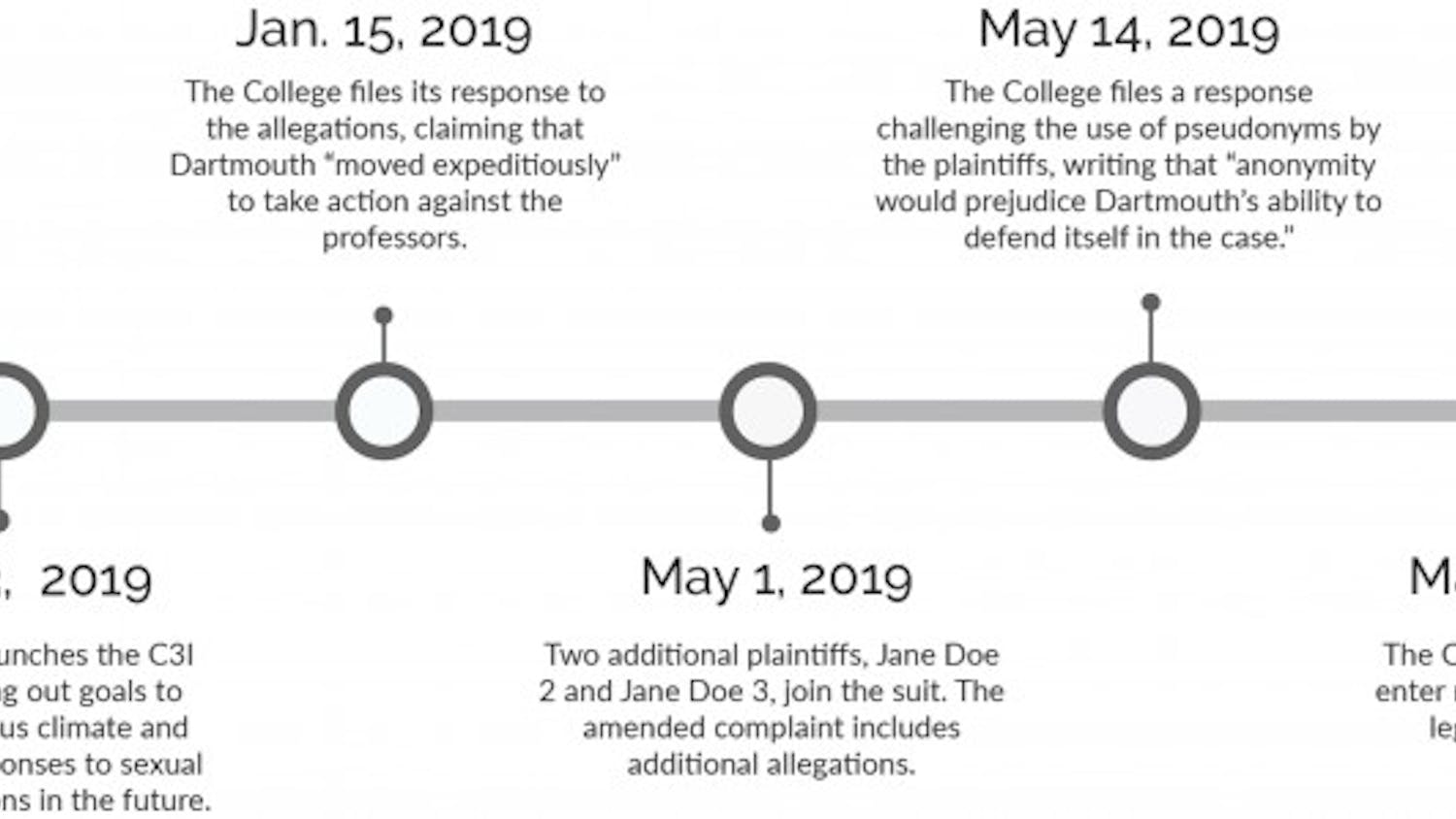On Sept. 18, the College officially launched the Sexual Violence Prevention Project for the Class of 2023 after piloting the program for the last two years. Meanwhile, members of the Class of 2022 are currently participating in Dartmouth Bystander Initiative presentations in preparation for fraternity and sorority rush. With the College recently settling the federal class-action sexual misconduct lawsuit filed by nine former students, sexual assault and how it influences the culture on campus is at the forefront of the minds of many administrators, faculty members and students.
As it stands, Dartmouth’s programming for combating sexual assault is not working. Sessions at orientation or freshman floor meetings on sexual assault point to resources after an incident has occurred, as opposed to preventing the incident in the first place. Some of the examples often proposed, like unplugging the auxiliary cord at a fraternity party to create a “distraction” in a threatening situation, could work in theory, but are not socially realistic and demonstrate the distance between students who receive these trainings and those who facilitate the material.
We propose prioritizing the involvement of students in the writing of programming and the facilitation of training. Students’ understanding of the campus culture is realistic. Hearing about one another’s lived experiences is the best way to learn and self-reflect. Furthermore, student involvement will create a buy-in; having students create the program will give them a sense of ownership over it. While the College’s press release announcing the creation of SVPP said the program was created with student involvement, the associate director of the Student Wellness Center, Amanda Childress, told The Dartmouth that the program will place less of a burden on students to be in charge — the opposite of what would be most helpful.
If individuals at the helm have not experienced the Greek system, modern dating apps and technology, social hierarchies or how LGBTQIA+ students fit into the community, just to name a few examples, then they should look to the people who experience it all the time: current Dartmouth students.
It is important to note that not all non-students are out of touch, and we applaud the College’s efforts to address the issue of sexual assault. But when it comes to witnessing or experiencing sexual assaults first-hand and offering solutions to prevent them, we should start by listening to students. Students understand the nuances of many of these situations better than people who have never found themselves in these specific contexts. Student sexual assault prevention groups serve an important role on campus, but they are often lumped in with less helpful, generic programming that undermines their success. Perhaps the College’s resources could be better spent on programs run by students who feel strongly enough about their peers’ safety to get involved in this way.
This is not a generational issue. Even if an administrator is young but not a student, they still may not understand the situations that place students most at risk. On the other hand, an Undergraduate Advisor or a Sexual Assault Peer Advisor may be more approachable to freshmen — who are at a higher risk for sexual assault — because peers are present in the same social situations and understand the limitations of Dartmouth’s culture.
Examples of effective programs can already be found on Dartmouth’s campus, but not as a part of SVPP. The most effective learning comes from specific, concrete examples and personal anecdotes. Platforms that allow students to share their lived experiences and tell their own stories, like the annual performance of “Voices,” are far more valuable as teaching moments than a hypothetical situation in a workshop. The existence of these kinds of platforms is contingent upon the hard work of a small group of very passionate students, speaking up, applying for funding and organizing events despite the broader institutional focus on other forms of training. This gives an ownership of the experience to the students sharing and the students learning.
It would be mistaken to believe that watching a video during rush or filling out a worksheet during orientation is enough. If the College must use certain programs to keep astride with peer institutions and third-party evaluations, so be it. By all means, do whatever must be done to follow the industry standard — but do not stop there. The dialogue should be proactive instead of reactive, and it should be conceived of by students.
The editorial board consists of the opinion editors, the executive editor and the editor-in-chief.


